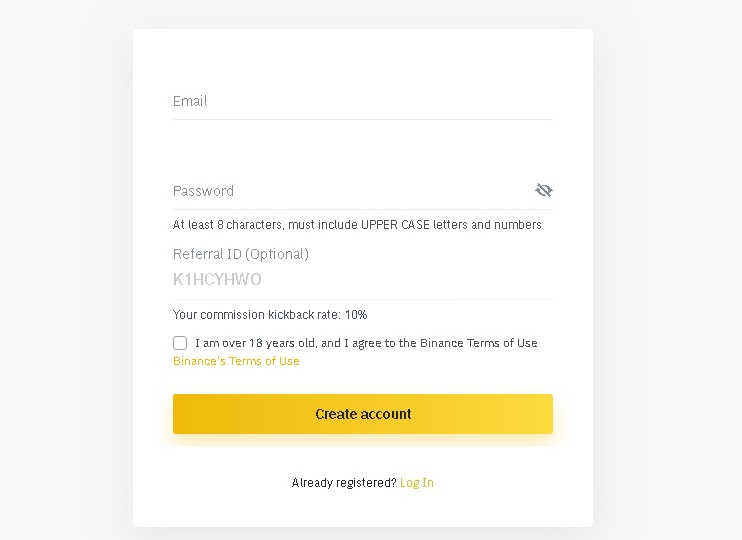

- #Binance verification time code
- #Binance verification time license
Order book DEXs compile all the buy and sell orders of all cryptos in one platform. Typically, DEXs can be either an order book DEX or a swap DEX. As the saying goes, not your keys, not your crypto. Instead, you trade and exchange tokens directly from your own crypto wallet, meaning that you have 100% ownership of your crypto. As a result, users simply create an account with their preferred DEX using their crypto wallet (usually a Web3 wallet like MetaMask) -it's that simple! And unlike centralized exchanges like Binance or Coinbase, DEXs do not hold users’ cryptos in a hot wallet. In addition to lower trading fees, DEXs have grown in popularity because they do not require users to submit any form of KYC verification.
#Binance verification time code
These transactions are facilitated through the use of self-executing agreements written in code called smart contracts.” As Cointelegraph explains, “Decentralized exchanges, also known as DEXs, are peer-to-peer marketplaces where cryptocurrency traders make transactions directly without handing over management of their funds to an intermediary or custodian. If it all sounds a bit intrusive, then what are your options? After all, you might not want to fall off the grid completely like one Bitcoin evangelist, but you might also not feel comfortable revealing so many personal details about yourself just because you want to trade BTC.ĭEXs might be one option to explore.
#Binance verification time license
Proof of ID – name, date of birth, and a copy of your national ID, passport, or driver's license. Of course, crypto exchanges with KYC typically handle their respective processes differently, but there’s a certain level of standardization in terms of the information that you'll be required to provide, which includes: At a bare minimum, having KYC helps onboard skeptics by offering an extra layer of an all-too-familiar vetting and verification process. We have to start from somewhere, and you cannot overhaul the entire centralized finance apparatus overnight. So, one might reasonably ask: what does any of this have to do with crypto exchanges? Well, the shorter version is that decentralized finance (DeFi) cannot exist in isolation it has to operate in tandem with the centralized financial system. Notably, decentralization promised to remove the bottlenecks presented by the KYC process and make transactions trustless. In most cases, the KYC process complements the anti-money laundering (AML) policies established to deter illegally obtained earnings from being disguised as legitimate income. The KYC process is a regulatory requirement for centralized financial institutions to confirm that the person opening an account is who they claim to be, which, as suggested earlier, is designed to prevent money laundering, the funding of terrorism, and tax evasion. “ KYC” stands for "know your customer" or "know your client." The simplest explanation of KYC is that it is the process that financial institutions use to verify the identity of their account holders. In the following guide, we’ll 1) take a brief look at KYC and crypto, 2) review the top crypto exchanges without KYC, 3) briefly touch on some of the best crypto exchanges with KYC, and, finally, 4) outline how you can buy crypto without KYC by using Uniswap. What sort of options do you have in terms of crypto exchanges without KYC? However, what if you have principled objections to KYC? Let’s say that you have absolutely nothing to do with money laundering or financing terrorism, but simply wish to stay anonymous. Still others, though, see blockchain as the solution to inefficient KYC processes. As reported by the Bitcoinist, “the adoption of a coordinated international crypto KYC approach could solve the growing ransomware problem as attackers will be easily tracked based on their personal information.” In fact, many see KYC measures as one of the keys to crypto’s longevity. Sure, there are some very important reasons for complying with KYC, chief among them being the fact that it can be an effective anti-money laundering (AML) measure. 
If you've ever set up an account with any of the leading crypto exchanges, you’ve likely been asked to complete the know-your-customer (KYC) process before being allowed to make any transactions. Now, however, KYC within the crypto space has become an inescapable reality for most people. There once was a time when the crypto market seemed poised to eliminate the cumbersome KYC verification process (remember when Binance only required an e-mail address?).






 0 kommentar(er)
0 kommentar(er)
